Mouth sores can arise from a variety of causes, including infections, physical injury, and tobacco use. Seek medical attention for certain lesions—particularly those with white patches or ones that appear after starting a new medication.
Mouth sores are a frequent annoyance that many people encounter during their lives. These lesions may develop on any of the soft tissues inside the mouth, such as the lips, inner cheeks, gums, tongue, and the floor or roof of the mouth.
Most mouth sores are minor irritations that resolve within 1 to 2 weeks. In some instances, however, they could signal a more serious problem like an infection or oral cancer.
Continue reading for details about the various types and causes of mouth sores, along with images to help you recognize them.
This article covers the kinds and causes of mouth sores, includes photos to assist identification, and offers guidance on treatment options.


What are the symptoms of mouth sores?
Frequent symptoms of mouth sores include:
- redness
- pain (particularly when eating or drinking)
- burning sensation
- tingling
Depending on their size, severity, and location, mouth sores can interfere with eating, drinking, swallowing, speaking, or breathing. Blisters may sometimes form over the sores.
See a healthcare provider if you notice any of the following:
- sores larger than 1/2 inch across
- frequent recurrences of mouth sores
- rash
- joint pain
- fever
- diarrhea
What causes mouth sores?
Many factors can cause mouth sores, ranging from common day-to-day issues to more serious medical conditions. A mouth sore often appears when you:
- bite your tongue, lip, or cheek
- burn the inside of your mouth
- experience irritation from a sharp item like braces, a retainer, or dentures
- brush too vigorously or use a very stiff toothbrush
- use chewing tobacco or smoke
- have the herpes simplex virus
Sometimes mouth sores result from—or are reactions to—the following:
- over-the-counter or prescription drugs, such as antibiotics or corticosteroids
- gingivostomatitis
- infectious mononucleosis
- oral thrush
- hand, foot, and mouth disease
- radiation or chemotherapy
- autoimmune conditions
- bleeding disorders
- cancer
- celiac disease
- bacterial, viral, or fungal infections
- a weakened immune system due to AIDS or after an organ transplant
How are mouth sores diagnosed?
In many cases, you can recognize a mouth sore without a provider’s help. Still, contact a healthcare professional if you have:
- white patches on sores, which might indicate leukoplakia or oral lichen planus
- suspected herpes simplex or another infection
- sores that don’t heal or that worsen after a couple of weeks
- recently started a new medication
- begun cancer treatment
- recently undergone transplant surgery
During an exam, a clinician will inspect your mouth, tongue, and lips. If cancer is suspected, they may perform a biopsy and order additional tests.
Are there home remedies for mouth sores?
Minor mouth sores typically heal on their own within 1 to 2 weeks. Several home measures can ease pain and might help speed recovery. Consider:
- avoiding hot, spicy, salty, citrusy, and high-sugar foods
- steering clear of tobacco and alcohol
- gargling with salt water
- consuming ice, popsicles, sherbet, or other cold items
- taking an analgesic like acetaminophen (Tylenol)
- refraining from squeezing or picking at sores or blisters
- applying a thin paste of baking soda mixed with water
- asking your pharmacist about other OTC gels, pastes, or mouthwashes that may help
Are there medications for mouth sores?
If you visit a healthcare provider for mouth sores, they may prescribe pain relievers, anti-inflammatory medications, or steroid gels. When sores are caused by viral, bacterial, or fungal infections, appropriate antimicrobial therapy may be prescribed.
For mouth cancers, a biopsy is performed first. Treatment might then include surgery, radiation, or chemotherapy depending on the diagnosis.
Can you prevent mouth sores?
There’s no guaranteed way to avoid all mouth sores, but you can reduce your risk by taking certain precautions, such as:
- avoiding very hot foods and beverages
- chewing carefully
- using a soft-bristled toothbrush and maintaining good oral hygiene
- talking to your dentist if dental appliances or teeth irritate your mouth
- managing stress
- eating a balanced diet
- cutting out or limiting irritating foods like spicy dishes
- taking vitamin supplements, especially B vitamins
- staying well-hydrated
- avoiding smoking and other tobacco products
- limiting alcohol intake
- protecting your lips from sun exposure with SPF 15 lip balm or by seeking shade
Frequently asked questions
How do you heal sores in your mouth?
A clinician may prescribe medications to treat the sores or address an underlying cause. Home strategies that can aid healing and prevention include:
- gargling with salt water
- avoiding tobacco use
- applying a baking soda and water paste
What do stress sores look like in the mouth?
Stress-related sores are typically canker sores. Stress is a recognized risk factor for developing and recurrent canker sores.
When should I be concerned about mouth sores?
See a doctor if you have sores that:
- occur frequently
- are very large and extremely painful
- don’t heal or progressively worsen
- are accompanied by other symptoms, such as fever
How long do mouth sores last?
Duration depends on the cause. Canker sores generally heal within a short time but can sometimes persist longer. If a sore remains after 2 weeks without signs of improvement, consult a healthcare professional.
Takeaway
Mouth sores are common and usually resolve within 1 to 2 weeks.
They can make eating and drinking uncomfortable. Various over-the-counter rinses, gels, or medications may provide relief.
Persistent or recurrent mouth sores could indicate an ongoing or more serious condition. If you experience frequent unexplained sores or lesions that don’t heal, seek medical evaluation for diagnosis and treatment.


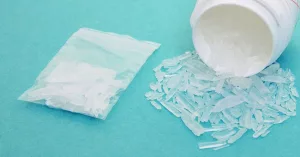
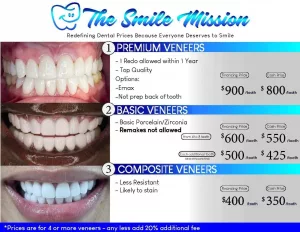

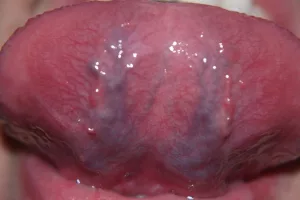
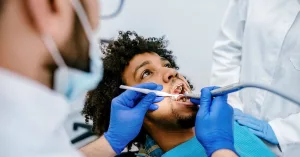


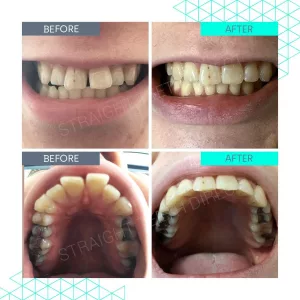

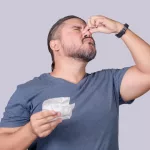
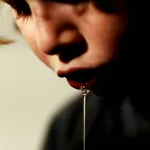










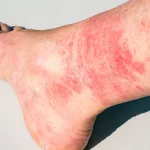

Leave a Reply
You must be logged in to post a comment.